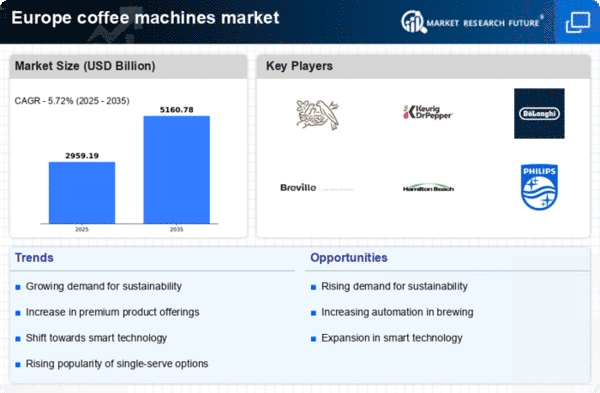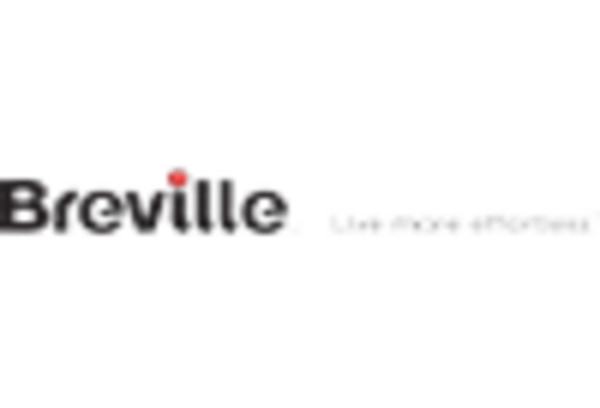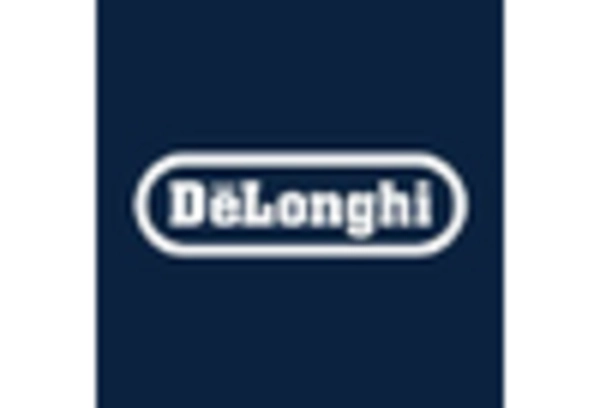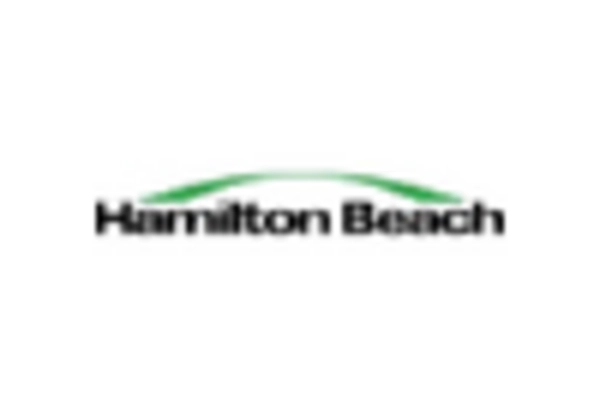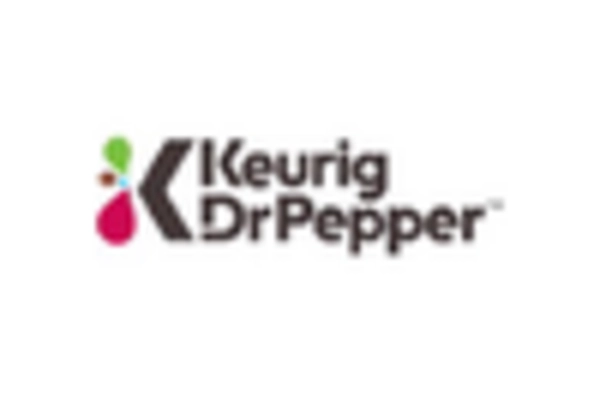E-commerce Growth
The rapid growth of e-commerce in Europe is significantly impacting the coffee machines market industry. With more consumers turning to online shopping for convenience, the availability of coffee machines through various e-commerce platforms is expanding. This shift is particularly evident in the rise of direct-to-consumer sales, which allow brands to reach customers more effectively. Recent statistics indicate that online sales of coffee machines have increased by 30% in the past year, highlighting the changing purchasing behavior of consumers. As e-commerce continues to flourish, it is likely to drive competition among manufacturers, leading to more innovative products and better pricing strategies. Consequently, the coffee machines market industry is expected to benefit from this trend, as consumers increasingly prefer the ease of online shopping.
Rising Coffee Consumption
The increasing coffee consumption in Europe is a pivotal driver for the coffee machines market. Recent data indicates that coffee consumption in Europe has reached approximately 9.5 kg per capita, reflecting a growing preference for coffee among consumers. This trend is likely to stimulate demand for various coffee machines, as consumers seek to replicate café-quality beverages at home. The coffee machines market industry is expected to benefit from this rising consumption, as households invest in machines that cater to their evolving tastes. Furthermore, the shift towards premium coffee options may lead to an increase in sales of high-end machines, which offer advanced brewing capabilities. As coffee culture continues to flourish, the market is poised for growth, driven by the desire for quality and convenience in coffee preparation.
Health and Wellness Trends
The growing emphasis on health and wellness among European consumers is influencing the coffee machines market industry. As individuals become more health-conscious, there is a rising demand for coffee machines that offer healthier brewing options, such as cold brew or espresso machines that minimize the use of sugar and additives. Additionally, the trend towards organic and sustainably sourced coffee beans is prompting consumers to invest in machines that can enhance the flavor and quality of their brews. Market data suggests that the organic coffee segment has seen a growth of 20% in recent years, indicating a shift in consumer preferences. This focus on health and wellness is likely to drive the demand for coffee machines that align with these values, thereby shaping the future landscape of the market.
Sustainability Initiatives
Sustainability initiatives are becoming increasingly relevant in the coffee machines market industry. European consumers are showing a growing preference for eco-friendly products, including coffee machines that utilize sustainable materials and energy-efficient technologies. This trend is reflected in the rising demand for machines that are designed to minimize waste, such as those with reusable filters or energy-saving features. Market data suggests that sales of eco-friendly coffee machines have surged by 25% over the last two years, indicating a shift towards more sustainable consumption patterns. As manufacturers respond to this demand by developing greener products, the coffee machines market industry is likely to see a transformation, with sustainability becoming a key differentiator in product offerings.
Technological Advancements
Technological advancements play a crucial role in shaping the coffee machines market industry. Innovations such as smart coffee machines, which can be controlled via mobile applications, are gaining traction among tech-savvy consumers. These machines often feature customizable settings, allowing users to tailor their coffee experience to their preferences. The integration of IoT technology is also becoming more prevalent, enabling machines to connect to home networks for enhanced functionality. As consumers increasingly seek convenience and personalization, the demand for technologically advanced coffee machines is likely to rise. This trend is supported by market data indicating that the smart coffee machine segment is projected to grow at a CAGR of 15% over the next five years. Consequently, the coffee machines market industry is expected to evolve, driven by the continuous pursuit of innovation.


